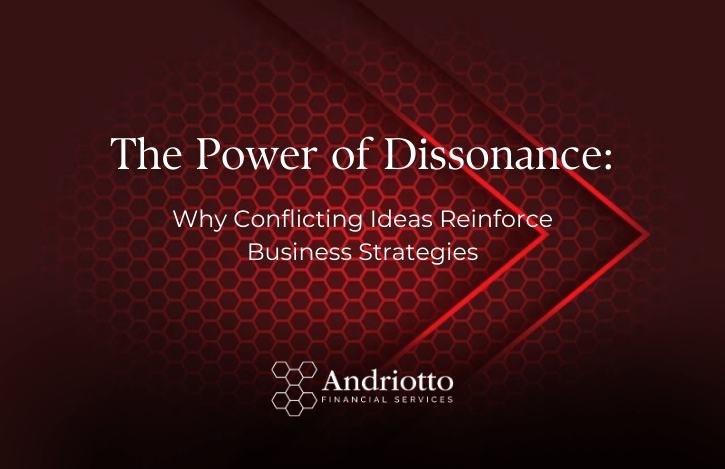In an ever-changing and unpredictable world, successful strategies are those that embrace a portfolio of options, rather than rigid roadmaps. A recent Harvard Business Review (HBR) article emphasized the importance for companies to adopt strategies based on radical optionality. The article argues that conflicting ideas reinforce business strategies. This is particularly applicable to our current uncertain and rapidly changing world. These strategies involve continuously developing new options that can serve as the foundation for future success, depending on the unforeseen circumstances companies may encounter.
However, given the associated costs and risks, implementing radical optionality can be challenging for companies. In fact, exploring and creating options can be risky, complex, and expensive. It can also result in unnecessary duplications. Moreover, the growing constraints on resources, particularly the rising cost of capital, further complicate the challenge.
In addition to challenging traditional trade-offs in strategy, a new approach is needed in how we think, communicate, and lead strategies. We need to recognize that a strategy is no longer a singular unchanging roadmap. Instead, it is a diverse portfolio of possibilities that requires a completely new playbook.
To thrive in this era of radical optionality, managers and leaders must embrace the following principles:
-
Variety and dissonance of narratives
When communicating strategies, stories are often used as effective and simplified representations of complex realities. Nevertheless, when pursuing different and potentially conflicting future options, relying on a single, unchanging strategic narrative becomes inadequate. Alternatively, organizations should promote and embrace multiple, evolving stories that facilitate exploring different options and switching between them.
In a world marked by multiple narratives, organizations may need to release their pursuit of complete consistency and stability in their storytelling. (This has traditionally been associated with integrity.) Instead, they should embrace the notions of variety and change as essential elements.
-
Oral communication as a tool to explore and refine thoughts
Narratives are a valuable tool for strategy formulation and testing. Verbalizing ideas helps organize thoughts and identify logical weaknesses.
When pursuing radical optionality, sharing strategic ideas with others can be a means of improving them. Moreover, speaking can be a form of thinking itself. It allows us to test and refine strategies by verbalizing them, receiving feedback, and collaborating with others to shape and prioritize ideas. In this context, telling multiple, potentially conflicting stories can be advantageous. In fact, doing so prompts valuable reactions that can be perceived and used.
The practice of using oral communication as a tool to explore and refine thoughts is applicable within organizations. It helps them explore and comprehend different perspectives. Executives can organize workshops to immerse themselves in the mindset of industry disruptors, such as start-ups challenging established business models. Through engaging discussions, they can assess the potential success of these innovative ideas.
-
Embracing the path to a new culture
Narratives are a valuable tool for strategy formulation and testing. Verbalizing ideas helps us organize thoughts and identify logical weaknesses.
Company leaders are the primary creators of meaning within their organizations. As such, they play a crucial role in setting the organizational atmosphere and framework for thoughts and discussions. They must, hence, take the lead in driving the necessary changes in mindset and communication approaches that facilitate radical optionality. In order to accomplish this, they should:
– Serve as role model. Company leaders should demonstrate comfort in sharing multiple stories and embracing contradictions when new narratives emerge and become more significant. This does not imply fabricating or distorting facts and truths. Rather, it means acknowledging that facts can align with various potential narratives which may not always be compatible. Circumstances evolve and our understanding evolves alongside them.
– Establish novel practices. To harness the power of oral communication in refining thoughts, the creation of a secure environment is crucial. This involves ensuring that employees feel comfortable expressing and exploring ideas in their early stages, before they have undergone thorough review with colleagues. Such an atmosphere fosters open communication and promotes the effective development of ideas within the organization. It should be understood that engaging in this process does not pose a risk to one’s career. However, establishing boundaries is crucial for public forums where thinking aloud takes place. This precaution becomes particularly important as the consequences of poorly received or ultimately unimplemented ideas can be more significant in such settings. Creating clear guidelines helps manage expectations and facilitates a constructive environment for expressing and evaluating thoughts openly.
– Promote a secure atmosphere. Leadership should focus on fostering an environment that encourages the convergence of diverse viewpoints. Such an approach empowers employees to freely explore and experiment with novel ideas, concepts and procedures within the organization.
Source: Harvard Business Review (2023)
At AFS, we are passionate about fostering innovation and empowering ambitious minds to flourish. Our mission is to provide best-in-class financial services for traditional and crypto deals, exploit European grants, and use quantitative methods to improve clients’ performance. We aim to help our customers unlock their full business potential.
Are you looking to fund your next venture or unlock grant opportunities?
Contact us at [email protected]!


